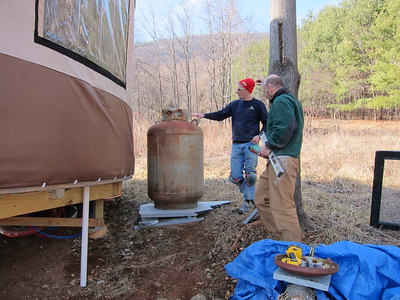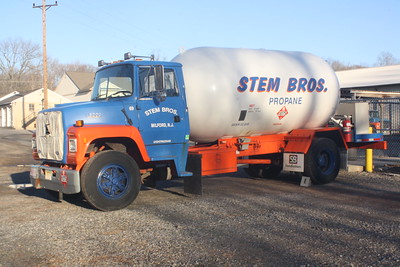
Propane, a byproduct of natural gas processing and crude oil refining, is a popular fuel choice for various applications ranging from home heating and cooking to powering vehicles and industrial processes. While propane boasts benefits such as lower greenhouse gas emissions, efficiency, and versatility, it is also important to consider the drawbacks associated with this fuel source. In this article, we will delve into some of the disadvantages of propane, including cost, safety concerns, availability, and environmental impact.
Cost
While propane is often considered a cost-effective fuel source in comparison to other options, such as electricity, it can still be relatively expensive depending on regional pricing and fluctuations in the global market. Propane prices are tied to factors such as crude oil prices and supply-demand dynamics, which can make it susceptible to volatility. Moreover, the initial investment required to install a propane system, including tanks and other necessary equipment, can be substantial. These costs can be a barrier for consumers considering a switch to propane for their energy needs.
Safety Concerns
Although propane is generally safe when used and stored properly, there are still risks associated with its use. Propane is heavier than air, so it can accumulate in low-lying areas and enclosed spaces, posing a risk for explosions or fires if ignited by a spark or open flame. Gas leaks can be difficult to detect, as propane is naturally odorless. To mitigate this risk, an odorant called ethyl mercaptan is added to help users detect leaks, but it is not foolproof.
In addition to the risk of explosion or fire, propane combustion can produce carbon monoxide (CO), a colorless, odorless, and tasteless gas that can be lethal at high concentrations. Properly functioning appliances and ventilation systems can minimize the risk of CO poisoning, but accidents and equipment malfunctions can still occur.
Availability and Infrastructure
While propane is widely available in many parts of the world, accessibility can be limited in certain regions or rural areas. For residential consumers, propane must be delivered by truck and stored in tanks on the property, which can be inconvenient and pose logistical challenges.
In the context of transportation, propane-powered vehicles require access to refueling stations, which are less common than gasoline and diesel stations. This can make long-distance travel more difficult and contribute to “range anxiety,” a common concern among alternative fuel vehicle owners.
Environmental Impact
Although propane is considered a cleaner-burning fuel compared to gasoline and diesel, it is still a fossil fuel and contributes to greenhouse gas emissions. When burned, propane releases carbon dioxide (CO2), a primary contributor to climate change. Furthermore, propane extraction and production processes, such as natural gas processing and crude oil refining, have environmental implications, including water and air pollution, habitat disruption, and the release of methane, a potent greenhouse gas.
Energy Density and Efficiency
Propane has a lower energy density than gasoline or diesel, meaning it contains less energy per unit of volume. This can translate to reduced fuel efficiency for propane-powered vehicles, which may require more frequent refueling compared to their gasoline or diesel counterparts. Additionally, in colder climates, propane’s lower energy density can result in reduced performance for heating systems, necessitating larger storage tanks or more frequent deliveries to maintain adequate heating levels.
Limited Applications
Although propane is versatile and can be used for various purposes, some applications are better suited for other fuel sources. For example, propane is less ideal for large-scale electricity generation due to its lower energy density and higher cost compared to natural gas or coal. Furthermore, propane is not suitable for high-temperature industrial processes, which often require fuels with higher energy densities, such as natural gas or coal.
offers many benefits as an energy source, but it is crucial to consider its drawbacks before making a decision to adopt it. Cost, safety concerns, availability, environmental impact, energy density, and efficiency limitations are important factors to weigh when evaluating propane as an option for your home, business, or transportation needs.
When assessing the suitability of propane, it is essential to research local availability, pricing, and infrastructure, as these factors can vary significantly between regions. Additionally, consider the specific applications for which you intend to use propane, as some may be more suitable for alternative fuel sources.
Propane may be the right choice for many individuals and businesses, especially when considering its lower greenhouse gas emissions compared to other fossil fuels. However, as the world moves towards more sustainable and renewable energy sources, it is important to keep an eye on emerging technologies and cleaner alternatives that can help reduce our dependence on fossil fuels and minimize our environmental impact.
Maintenance and Inspection
Propane systems require regular maintenance and inspections to ensure their safe and efficient operation. For residential users, this involves periodic checks of propane tanks, lines, and appliances by qualified professionals. Neglecting these inspections can lead to potential safety hazards, such as gas leaks, fires, or carbon monoxide poisoning. Additionally, equipment failure or malfunctions can result in higher energy costs due to inefficiencies or the need for expensive repairs.
For propane-powered vehicles, regular maintenance is essential to keep the fuel system in optimal condition. This includes replacing filters, inspecting fuel lines, and checking the pressure regulator, among other tasks. The added maintenance requirements for propane vehicles can increase costs and time spent on upkeep compared to conventional gasoline or diesel-powered vehicles.
Emergency Preparedness
Propane users must have a plan in place for emergencies, such as gas leaks, fires, or natural disasters. Preparing for emergencies involves installing gas detectors, fire extinguishers, and ensuring proper ventilation in homes and businesses that use propane. Additionally, it is important to educate all occupants of the property about the proper procedures to follow in case of an emergency, such as evacuating the area, shutting off the gas supply, and contacting emergency services.
For propane-powered vehicles, carrying a fire extinguisher and being familiar with the location of the fuel shut-off valve can help mitigate risks in case of an accident or fire. Moreover, drivers should be aware of any restrictions or precautions regarding the transportation of propane vehicles, such as traveling through tunnels or parking in enclosed spaces.
Storage and Aesthetic Considerations
Propane tanks can be bulky and unattractive, which may pose a challenge for homeowners concerned about the appearance of their property. Large tanks may be difficult to conceal, and local regulations may dictate the placement of tanks, further limiting options for hiding them from view. Additionally, maintaining an adequate buffer zone between propane tanks and buildings or property lines can be challenging for homeowners with limited space or in densely populated areas.
Transition and Adaptation Challenges
For those considering a switch to propane, the transition can be challenging and may require significant time and resources. This includes the installation of propane tanks, lines, and appliances, as well as the removal of existing equipment for alternative fuel sources. Furthermore, users must become familiar with the unique characteristics and safety considerations associated with propane, such as detecting gas leaks, handling propane tanks, and managing emergency situations.
In the case of vehicles, converting an existing gasoline or diesel-powered vehicle to run on propane can be expensive and complicated, often requiring specialized knowledge and equipment. Alternatively, purchasing a new propane-powered vehicle can be costly and may limit options in terms of makes and models available.
Final Thoughts
While propane offers several advantages as a fuel source, it is essential to evaluate its disadvantages thoroughly before making the transition.
By considering factors such as cost, safety concerns, availability, environmental impact, energy density, efficiency, maintenance, emergency preparedness, aesthetics, and the challenges of transitioning to propane, individuals and businesses can make a well-informed decision regarding the suitability of propane for their specific needs.
As the world continues to move towards sustainable and renewable energy sources, it is crucial to stay informed about emerging technologies and cleaner alternatives that can help reduce our reliance on fossil fuels and minimize our environmental footprint.

Mike is an experienced propane technician with over 15 years of professional experience in the field. He has dedicated his career to helping customers with their propane needs, from installation to maintenance and repair. Together with Jeremy, he co-founded this website to provide useful information and guidance to customers seeking reliable propane services.



